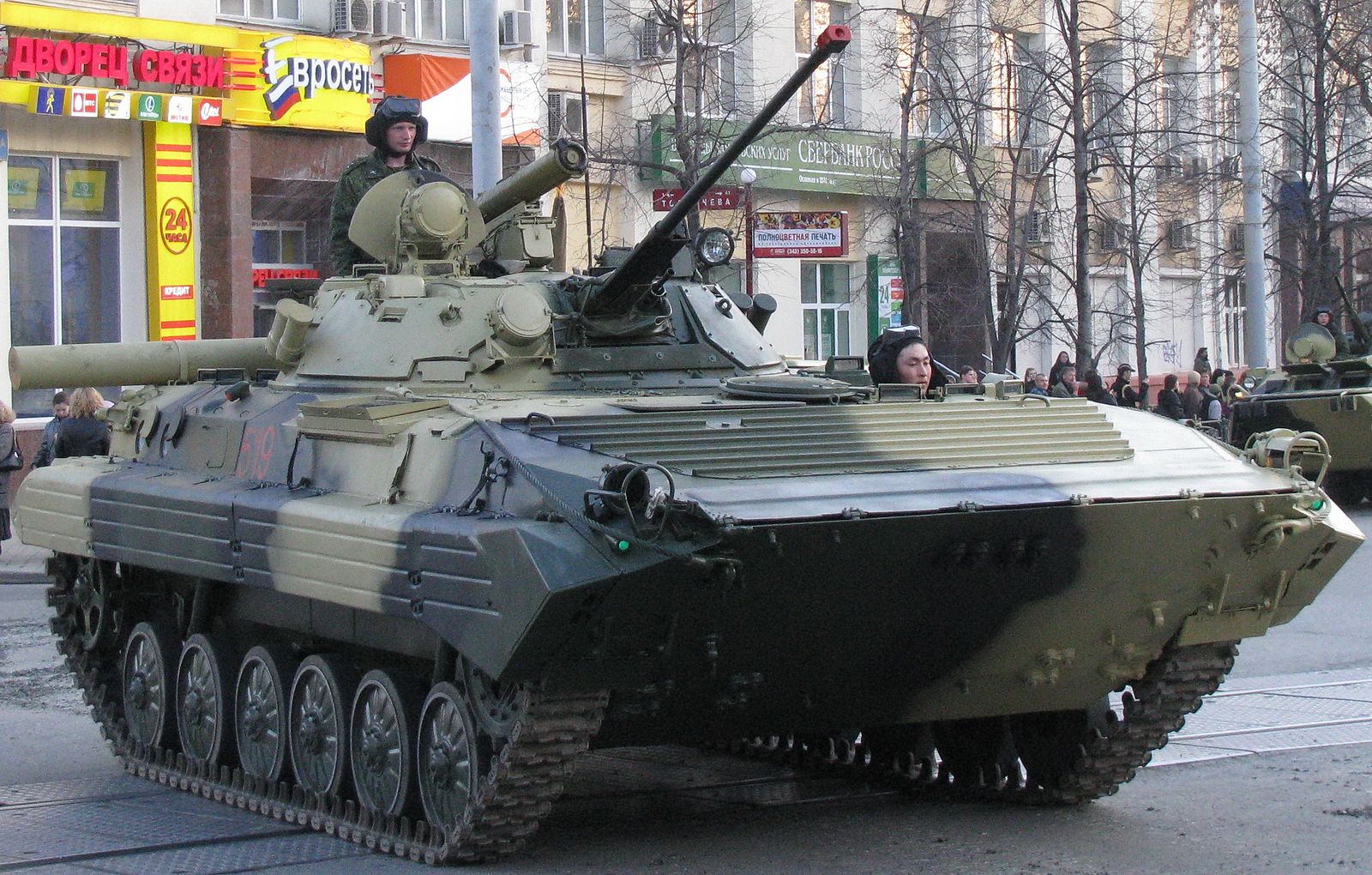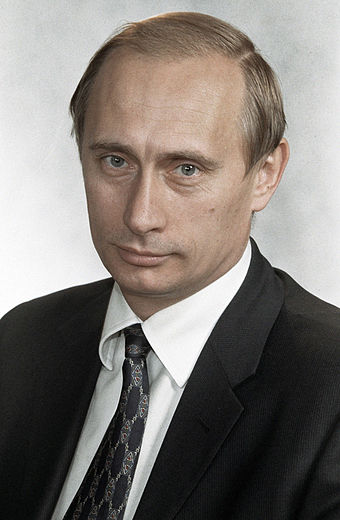In Ukraine, Two Disparate Futures of Geopolitics
By all accounts, the Ukrainian Crisis should not be happening. Whether it be through the assurances given by Russia in the Budapest Memorandum of 1994 to respect Ukraine’s “territorial integrity”, the clear and sharp detrimental economic effects that Russia would be (and is now) incurring, or the general idea of an age where interstate war has been consigned to the pages of history, the idea of Russia openly staging an armed invasion of its neighbor would not have been predicted by many a few days ago. But it is now happening.
At the heart of the situation is the mentality of Vladimir Putin and his colleagues at the Kremlin that Russia's time has come once again. Following their line of thinking, Cold War-style interventions can and should be staged to preserve Moscow’s influence in the “near abroad”, as Russians tend to characterize the former nations of the Soviet Union that are now members of the Confederation of Independent States (CIS). And under the shadow of the Beijing Olympics in 2008, Russia did just that, invading the nominally independent “republic” of South Ossetia—a region internationally recognized as part of the Republic of Georgia—to ostensibly protect it from “Georgian aggression”.
This time around, however, there is no rogue, self-proclaimed 'state' on whose behalf Russia can claim it is intervening. The Crimea remains a part of the Ukraine, as recognized by every country in the world, and hasn’t even declared its independence. Furthermore, Russia is actively threatening to invade the whole of the country, its parliament has authorized an intervention across the Ukraine, and the head of the Black Sea Fleet, based in the Crimean port of Sevastopol, has issued an ultimatum to Ukrainian forces demanding it surrender. Russia appears prepared to not only wrest control of the Crimea from Ukrainian hands, but to overtake the whole of the country as well. What, exactly, would this mean?
It could very well mean that the West, and the United States in particular, which has dominated global politics for the past two and a half decades since the fall of the Soviet Union, no longer can muster the force necessary to exert hegemonic control over global affairs. In other terms, it would be the much-anticipated end to American unipolarity—but at a much sooner time than was ever expected.
It would further mean the European Union could not guarantee its eastern neighbors security from invasion and dismemberment by a resurgent Russia. It would signal to the world that the major Western powers—the United States, the United Kingdom, and France—did not possess the wherewithal (or the desire) to uphold their treaty obligations in the face of resistance, as the three nations had pledged in the Budapest Memorandum to respect and maintain Ukraine’s territorial integrity in exchange for the surrender of its nuclear stockpile. It would signal a retreat from the world, and inspire a crisis of confidence in states that currently rely on the West to bolster their ability to resist the encroachments of expansionary powers.
The alternative outcome of the Ukrainian Crisis is radically differemt: a Russia permanently removed from great power status. If the West comes down fast and hard on Russia, pulling no punches (but firing no shots), the geopolitical landscape of the world could be forever changed in ways favorable to Western interests. And here’s how it would happen.
First, the United States would immediately and thoroughly cease its diplomatic relations with Russia, allowing no contact on any issues, no matter how trivial or minor; this would be followed by the removal of all non-essential staff from the embassy in Moscow, with great show. US citizens would be advised not to travel to Russia; other Western nations would advise their citizens to follow suit. Limiting visa issuance for the Russian consular officials to the embassies in Kiev and Tbilisi would subject them to public derision and agitation in front of a swarm of international news cameras. These opening shots, in combination, would demonstrate above all that the future of Ukraine is not up for debate: it is completely non-negotiable.
Vladimir Putin was able to come to power in Russia by co-opting the country’s oligarchic elites. Thus, through comprehensive and painful sanctions, this power structure should be placed under as much stress as possible: major Russian companies should be the subjects of economic sanctions; the assets of Russian business and political elites should be frozen; special tariffs should be imposed; and the Magnitsky Act, which prevents the entrance of a few dozen Russian officials into the American banking system, should be expanded correspondingly. A public declaration would follow announcing that if Russia did not immediately evacuate the Ukraine, the revenues gained from the sanctions and frozen assets would then be used in support of the Ukrainian government.
Further, US ports and airspace should be closed to Russian traffic. Turkey’s Bosporus Strait, which sees 2.5 million barrels of predominantly Russian oil pass through its waters, should be closed to all Russian ships immediately, thus crippling the country's ability to export valuable goods: a de facto blockade. If possible, the Skagerrak Strait between Denmark and Norway should too be closed, thus sealing off Russia’s Baltic coast from the Atlantic entirely.
This intense economic strain would hopefully compel Russia to disengage, at the least, by sending its economy into a tailspin. But are these measures sufficient?
It is not just the United States that has leverage on Russia; the Russians, through their gas and oil exports to European nations (30% of which travel through Ukraine), exert significant pressure upon US allies on the Continent. The European gas and oil supply would thus be secured through other means—the United States. With great haste, the restrictions on exports of oil and natural gas should be repealed, and the fuels directed towards Europe. Since the price of US exports of natural gas would more than double from $5/Mil. BTU to about $11/Mil. BTU, and thus be rendered dangerously close to the present price of around $11.60, these new fuel exports should be subsidized by the revenues drawn from Russian tariffs and frozen assets. Turkish help in facilitating gas exports from the Caucasus and the region should also be sought, and would have the positive side-effect of forging closer EU-Turkey ties at a time when the two are growing increasingly distant.
Beyond the sphere of economics, Russia would be subjected to intense military pressure. The recently-cancelled negotiations on missile defense systems proposed under the Bush administration should be resumed and openly cited as a formal response to the present crisis. In cooperation with Japan and South Korea, the United States should carry out major war games in the Pacific, where an Asia-Pacific Treaty Organisation (APTO) should also be publicly proposed. If need be, the United States could even intimate that it supports Japanese claims to the Chushima (Kuril) Islands—a contentious point for Russia.
Outside the Pacific, NATO troops should increase their presence in the Baltic states, Norway, and Poland, and NATO itself should construct new bases in Ukraine—both in friendly regions and close to the border with Russia. In Georgia, Turkish and NATO troops should be brought up to reinforce Georgian positions in the South Ossetian and Akhabazian borders. And finally, in Central Asia, a diplomatic offensive should be undertaken complete with highly public assurances of protection against Russian incursions offered, while the Manas Air Base in Kyrgyzstan should be kept open (forcibly compelling the Kyrgyzstanis to consent with this, if need be) and reinforced.
The combined pressures of these acts would present Russia with a fait accompli: resistance from all directions, an economy under immense strain, and economic elites enraged by the seizure of their wealth. Under such pressure, it is not unrealistic to imagine a scenario where Putin is seen as having recklessly ruined Russia’s position and standing in the world, and is compelled to step down—taking with him his whole system. For the coup de grace, a new Georgian offensive in its breakaway regions, a Japanese movement into the disputed Kuril Islands, and a joint NATO-Ukrainian “restoration of order” in pro-Russian, eastern Ukraine, would almost certainly create the perception of a relentless assault and a complete collapse of authority—again, with no shots fired.
In such a scenario, perceptions would become reality, and Russia would be subject to the will of the West and politically-neutral oligarchic elites (for proof of their power, look to London or New York's luxury apartment market). In such a scenario, the fantasies of American foreign policymakers—Russian denuclearization and expulsion from the U.N.Security Council, NATO expansion into Eastern Europe—could very well become reality.
Or, as was said before, the West could do nothing, and slide into irrelevance. Ukraine represents an immense opportunity for world leaders to reshape the global geopolitical landscape. But such action must be swift and coordinated—and this has not been forthcoming.



